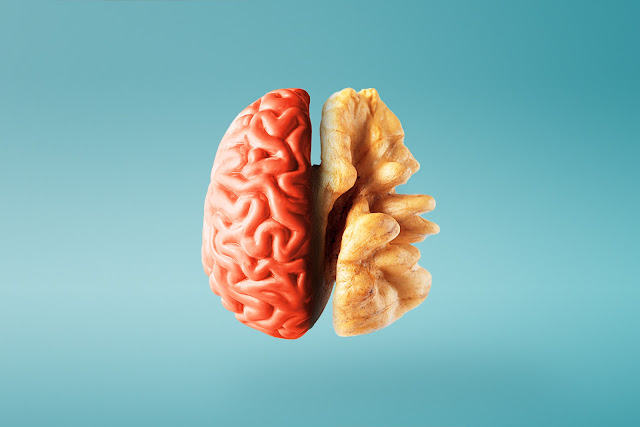In today’s fast-paced world, students face unprecedented challenges in their pursuit of education. Alongside academic pressures, the choices they make about their diet have a profound impact on their psychological health and academic performance. We tried diving deep into the detrimental effects of junk food on students, providing statistics that underscore the urgency of the issue. Furthermore, it explores the pivotal role parents play in shaping their children’s eating habits, emphasizing the importance of their involvement in promoting a healthier lifestyle.
I. The Pervasive Influence of Junk Food
A. The Prevalence of Junk Food everywhere
Junk food, characterized by its high levels of unhealthy fats, sugars, and additives, has infiltrated school environments across the globe. Vending machines and cafeterias often offer an array of sugary snacks, sodas, and processed foods. These readily available options can be tempting for students, leading them down a path of unhealthy eating habits. This easy access to junk food is a major contributor to childhood obesity and can have long-term consequences for students’ health.
B. The Appeal of Junk Food
Junk food’s popularity among students can be attributed to its taste, convenience, and aggressive marketing. Highly processed snacks and fast food items are designed to be irresistible, making it difficult for young minds to resist their allure. For instance, many popular fast-food chains offer discounts and special promotions that appeal to students, such as discounted combo meals or free refills. The junk food is often marketed with catchy slogans and cartoon characters to appeal to children’s sense of fun, making it more likely that they will snack on unhealthy foods.
II. The Detrimental Impact on Psychological Health
A. The Sugar and Mood Connection
High sugar consumption, a hallmark of junk food, has a direct impact on mood regulation. The rapid spikes and crashes in blood sugar levels can lead to irritability, mood swings, and increased stress levels. A study published in the American Journal of Clinical Nutrition found that high sugar intake was associated with a greater risk of developing depression in young adults. The study found that men who ate 67 grams of sugar or more per day were 23 percent more likely to have depression after five years.
B. The Link to Anxiety
Excessive junk food consumption has also been linked to increased anxiety levels. The additives and preservatives in processed foods, combined with nutrient deficiencies, can disrupt brain chemistry, contributing to feelings of unease and restlessness.
III. Academic Performance: A Victim of Junk Food
A. The Cognitive Impacts
Beyond psychological health, junk food has a significant influence on cognitive function. A diet high in processed foods, saturated fats, and sugars can lead to cognitive impairments, affecting memory, attention, and problem-solving abilities. According to research published in the journal Nutrients, students who consume more junk food tend to have lower academic achievement.
B. The Connection to Attention Deficits
The excessive consumption of junk food has also been associated with attention deficit issues. A study conducted by the National Institute of Mental Health found that high sugar intake was linked to a higher risk of attention deficit hyperactivity disorder (ADHD) symptoms in children.
IV. The Stark Statistics
To underscore the gravity of the issue, let’s examine some statistics related to junk food consumption and its impact on students’ psychological health and academic performance.
A. Junk Food in Schools
In India, the National Family Health Survey-4 (NFHS-4) reported that only about 13.2% of adolescents aged 13-17 years consumed fruits on a daily basis, while 4.7% consumed vegetables on a daily basis.
A study published in the Journal of Nutrition Education and Behavior reported that vending machines offering unhealthy snacks and drinks are found in approximately 43% of U.S. elementary schools, 74% of middle schools, and 98% of high schools. The India is not far behind, with vending machines offering unhealthy snacks and drinks being found in an increasing number of schools. Studies have found that these vending machines can have a negative impact on children’s dietary habits, leading to an increased risk of obesity and other lifestyle-related diseases.
B. Psychological Health
In India, depression affects an estimated 56 million people, making it the leading cause of disability among Indian adults. The WHO estimates that the economic burden of depression in India is more than US$ 8 billion, with US$ 3.5 billion of this amount coming from the loss of productivity.
A survey conducted by the American Psychological Association (APA) found that 86% of students reported feeling overwhelmed by their workload, with 34% stating that stress negatively impacted their academic performance. Studies conducted in India have also found that students are facing increasing levels of stress due to their workload. According to a survey conducted by the National Institute of Mental Health and Neuro Sciences (NIMHANS), nearly 70% of students in India reported feeling overwhelmed by their workload, and 25% reported that stress had adversely affected their academic performance.
C. Academic Performance
A systematic review of research published in the journal Frontiers in Psychology concluded that unhealthy dietary patterns are associated with lower academic performance. This conclusion is especially relevant in the Indian context, where poor dietary habits are becoming increasingly prevalent among students. According to a survey, the prevalence of unhealthy eating habits is higher among Indian students than among students in other countries. Moreover, Indian students are more likely to skip meals and consume unhealthy snacks, which can lead to poor academic performance.
According to the National Center for Learning Disabilities, students with ADHD are at a higher risk of academic difficulties, including lower grades and increased likelihood of grade retention. An estimated 8.4% of children and 2.5% of adults have ADHD.

V. The Parental Role in Developing Healthy Eating Habits
A. Setting the Foundation
Parents play a pivotal role in shaping their children’s eating habits from a young age. The choices parents make regarding food at home significantly influence their children’s preferences and attitudes towards nutrition. In India, traditionally, parents have been known to emphasize the importance of having a balanced diet by instilling healthy eating habits in their children. They teach their children to be mindful of what they eat and the portion sizes they consume.
B. The Importance of Education
Parents should educate their children about the importance of a balanced diet and the potential consequences of excessive junk food consumption. This includes discussing the impact on physical health, psychological well-being, and academic performance.
C. Creating a Supportive Environment
Parents can create a supportive environment by stocking the kitchen with nutritious options and limiting the availability of junk food at home. This approach encourages healthier choices and reinforces the value of nutritious foods.
D. Leading by Example
Children are more likely to adopt healthy eating habits when they observe their parents making nutritious choices. Modeling a balanced diet and demonstrating moderation with junk food can have a lasting impact on children’s habits.
VI. Practical Strategies for Parents
To empower parents in their role as nutrition influencers, here are some practical strategies:
A. Meal Planning and Preparation
Involve children in meal planning and preparation. This not only teaches them valuable cooking skills but also allows them to connect with the food they eat.
B. Balanced Family Meals
Prioritize family meals whenever possible. Shared meals provide an opportunity for open discussions about food choices and nutrition.
C. Mindful Eating
Encourage mindful eating by savoring each bite and paying attention to hunger and fullness cues. This practice fosters a healthier relationship with food.
D. Limiting Junk Food
While it’s essential not to ban junk food entirely, limit its presence at home and reserve it for occasional treats rather than daily consumption.
The impact of junk food on the psychological health and academic performance of students is undeniable. The statistics presented in this article emphasize the urgency of addressing this issue. As we navigate the challenges of modern education, it is essential to recognize the profound influence of diet on students’ well-being.
Parents, in particular, are instrumental in shaping their children’s eating habits. By educating, modeling, and creating a supportive environment, parents can help their children make healthier choices that extend beyond the dinner table. Together, we can nourish young minds and empower students to reach their full potential in both academics and life.
A writer of this blog is an experienced Global Career & Education advisor, helping parents to plan and manage global education of their children. You can share your feedback / reviews or connect with him on makarand.bhatt@yahoo.com












